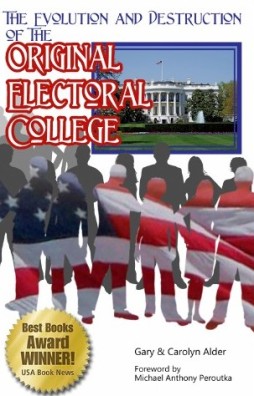1st Amendment
Congress shall make no law respecting an establishment of religion, or prohibiting the free exercise thereof; or abridging the freedom of speech, or of the press; or the right of the people peaceably to assemble, and to petition the government for a redress of grievances.
* * * * * * *
Analysis
Many have looked at this amendment through the various “clauses” arbitrarily assigned to it. Thus we designate: the “establishment” clause; the “free exercise” clause; the “freedom of speech” clause; the “freedom of the press” clause; and the “freedom of assembly” clause. Once the labels have been attached the effort has been to determine how the government should control and manage the various activities suggested by these labels. In other words, now that the labels are attached there seems to be no significant effort to determine what the 1st Amendment means, just how the concepts suggested by the labels can be enforced.
We would suggest an entirely different interpretation. Just for demonstration let us say that there is only one clause in this amendment. It is the “congress shall make no law” clause. Using this logic there are certain areas in which congress has been given no authority to act. There is no need to try to determine how congress is going to make regulations in an area in which they may not make regulations.
Since Congress is forbidden to legislate on the stated topics, then according to the thinking of the Founders, as also clarified by the 10th Amendment, that power is retained by the States if the state constitution endowed the state with that power or with the people if not. Let us take an additional look at the preclusions that are commonly labeled clauses.
The Establishment Clause
The amendment does not contain the phrase “the establishment” (using the definite article) but rather the phrase “an establishment” (using the indefinite article). In the sense evinced by the use of the definite article, the process of establishing something would be “the establishment of” that something. “An establishment” refers to that which has been established. In this case an establishment of religion refers to a particular denomination, sect, or church. If we then look at the wording rather than the label, it is obvious that Congress was to have no jurisdiction over any church or religious sect either to assist or to hinder.
This meaning is verified by referring to statements made in the House of Representatives while trying to come up with the final wording of the amendment. The original wording as submitted to the House of Representatives was “no religion shall be established by law, nor shall the equal rights of conscience be infringed.” Mr. Gerry suggested that it be worded “no religious doctrine shall be established by law.” Mr. Livermore put it this way “Congress shall make no laws touching religion, or infringing the rights of conscience.”
The Free Exercise Clause
In the same debate referred to in the preceding paragraph Mr. Daniel Carroll’s comments were described as follows: “As the rights of conscience are, in their nature, of a peculiar delicacy, and will little bear the gentlest touch of governmental hand; and as many sects have concurred in opinion that they are not well secured under the present constitution…” he said that he didn’t worry about the phraseology but an amendment of this nature was very important.
The point is Congress was not to prohibit the free exercise of religion.
The Freedom of Speech Clause
Speech is the tool of communication using words to express concepts. It can be either spoken or written. If we truly desire to communicate, particularly abstract concepts, words are critical. Congress was not to restrain our speech even if they didn’t like what we are saying. In recent years destructive actions have been interpreted by the courts as free speech. We see no basis in the Constitution for these rulings.
The Freedom of the Press Clause
The use of media allows speech to be disseminated to many people and therefore can be a threat to tyrants. Congress was not to abridge this form of communication either.
The Right to Assemble and Petition Clause
In our country people have the right to assemble and petition the government for a redress of grievances. Congress is to have no power to abridge this right. This grants no authority to protest non-government and private actions or to disrupt or obstruct. Nowhere is disorderly conduct listed as a right.


